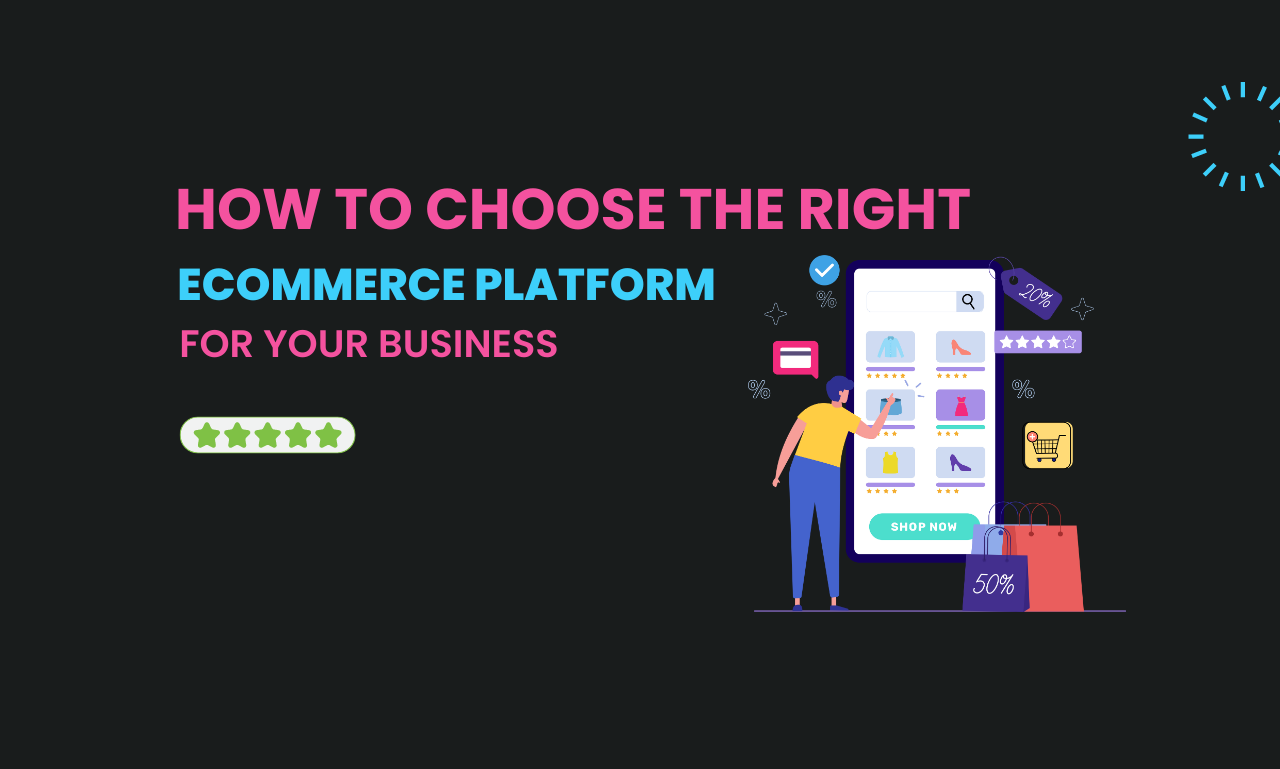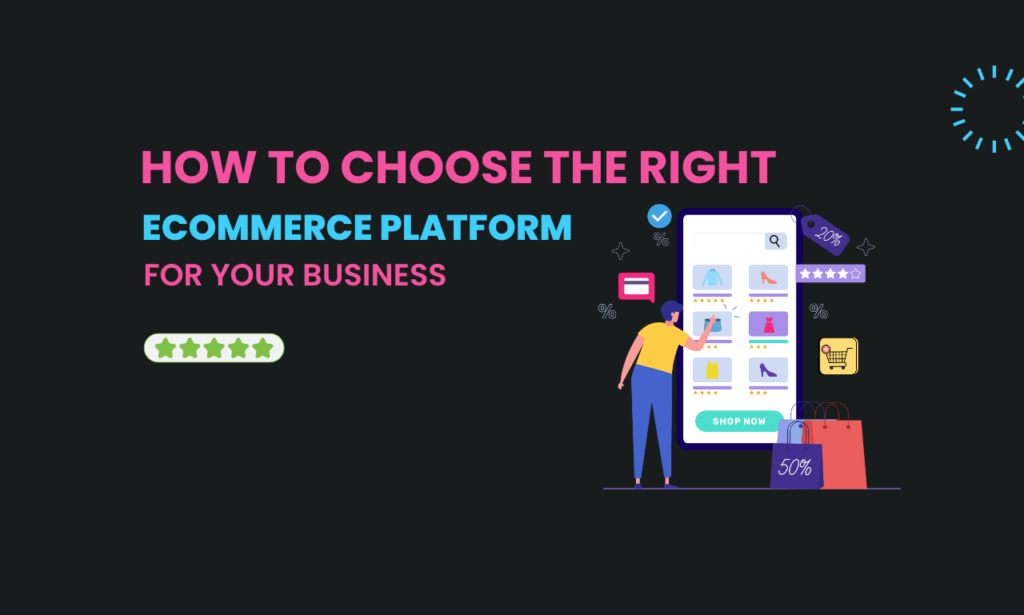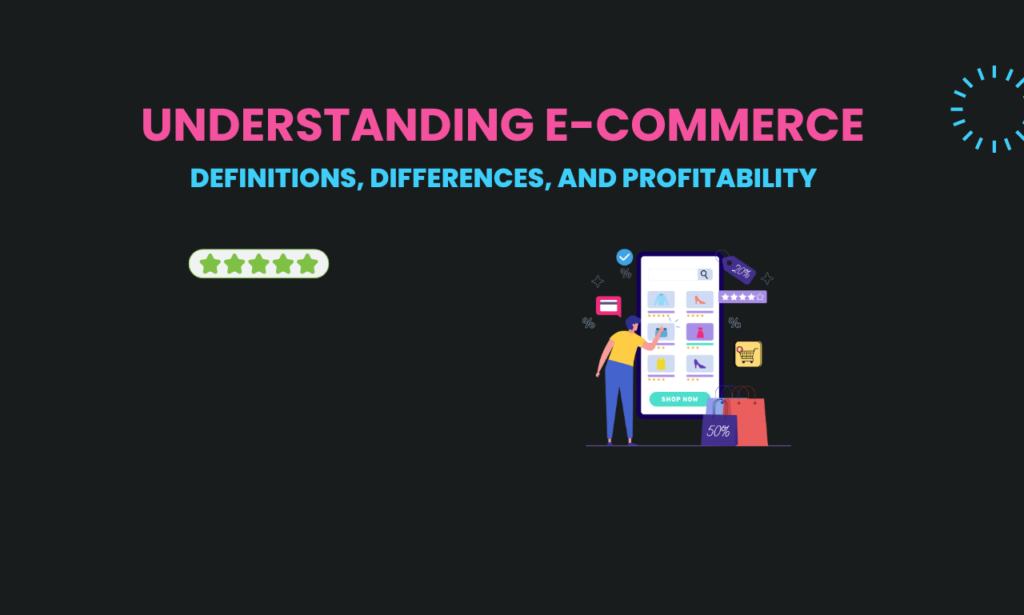Choosing the right eCommerce platform is a critical decision that can significantly impact the success of your online business. With so many options available, it can be overwhelming to determine which platform best suits your needs. In this comprehensive guide, we’ll explore the key factors to consider and compare some of the most popular eCommerce platforms to help you make an informed decision.
Table of Contents
Key Factors to Consider
1. Business Size and Scalability
Consider the current size of your business and your growth projections. Some platforms are better suited for small businesses and startups, while others are designed to handle the needs of large enterprises.
- Small Businesses: Look for platforms that are easy to set up and manage, with affordable pricing plans.
- Medium to Large Businesses: Choose platforms that offer robust features and scalability to support growth and high traffic volumes.
2. Ease of Use
The platform you choose should be user-friendly, especially if you don’t have extensive technical expertise. An intuitive interface and easy-to-use tools will save you time and effort in managing your store.
3. Customization and Flexibility
Your eCommerce platform should offer the flexibility to customize your store to match your brand and business needs. Look for platforms with a wide range of themes and templates, as well as the ability to modify the code if necessary.
4. Features and Functionality
Identify the essential features your online store needs, such as:
- Product Management: Easy product listing, inventory management, and categorization.
- Payment Options: Multiple payment gateways to provide a seamless checkout experience.
- SEO Tools: Built-in SEO features to help your store rank higher in search engine results.
- Marketing Tools: Email marketing, social media integration, and discount codes.
- Analytics: Detailed reports and analytics to track your store’s performance.
5. Budget
Evaluate the total cost of ownership, including subscription fees, transaction fees, payment processing fees, and any additional costs for plugins and themes. Make sure the platform fits within your budget while offering the features you need.
6. Security
Ensure the platform provides robust security features, including SSL certificates, PCI-DSS compliance, and protection against fraud and data breaches.
7. Customer Support
Reliable customer support is essential for resolving issues quickly and efficiently. Look for platforms that offer 24/7 support through various channels like chat, email, and phone.
Comparison of Popular eCommerce Platforms
1. Shopify
Overview: Shopify is one of the most popular eCommerce platforms, known for its ease of use and extensive feature set. It caters to businesses of all sizes and offers a wide range of themes and apps.
- Pros:
- User-friendly interface
- Large app store for extended functionality
- 24/7 customer support
- Scalable plans for growing businesses
- Cons:
- Transaction fees unless using Shopify Payments
- Limited customization without advanced coding knowledge
Ideal For: Small to medium-sized businesses looking for an easy-to-use platform with a variety of features.
2. WooCommerce
Overview: WooCommerce is a WordPress plugin that transforms a WordPress site into an eCommerce store. It’s highly customizable and best suited for users familiar with WordPress.
- Pros:
- Highly customizable with numerous plugins and themes
- No transaction fees
- Strong community support
- Cons:
- Requires more technical knowledge to set up and maintain
- Hosting and security are your responsibility
Ideal For: Businesses already using WordPress or those looking for high customization flexibility.
3. Magento
Overview: Magento is a powerful eCommerce platform designed for large businesses and enterprises. It offers extensive features and customization options but requires technical expertise to manage.
- Pros:
- Highly scalable and customizable
- Robust features for large stores
- Strong SEO capabilities
- Cons:
- Complex setup and management
- High hosting and maintenance costs
Ideal For: Large businesses with the technical resources to manage a complex platform.
4. BigCommerce
Overview: BigCommerce is a fully-hosted platform known for its scalability and rich set of features. It’s suitable for businesses of all sizes, offering robust tools for growing eCommerce stores.
- Pros:
- No transaction fees
- Extensive built-in features
- Strong SEO performance
- Cons:
- Fewer themes compared to competitors
- Higher pricing for advanced features
Ideal For: Medium to large businesses looking for a scalable platform with built-in features.
5. Wix eCommerce
Overview: Wix eCommerce is a user-friendly platform ideal for small businesses and entrepreneurs. It offers drag-and-drop website building with integrated eCommerce features.
- Pros:
- Easy to use with drag-and-drop functionality
- Affordable pricing plans
- Variety of templates and design options
- Cons:
- Limited scalability for larger businesses
- Fewer advanced features
Ideal For: Small businesses and entrepreneurs looking for an easy and affordable way to start an online store.
Conclusion
Choosing the right eCommerce platform depends on your business needs, budget, and technical expertise. By considering factors such as scalability, ease of use, customization, features, budget, security, and customer support, you can find the platform that best aligns with your business goals.
Evaluate the options we’ve discussed—Shopify, WooCommerce, Magento, BigCommerce, and Wix eCommerce—based on these criteria to make an informed decision. Remember, the right platform can set the foundation for your eCommerce success, so take the time to choose wisely.






